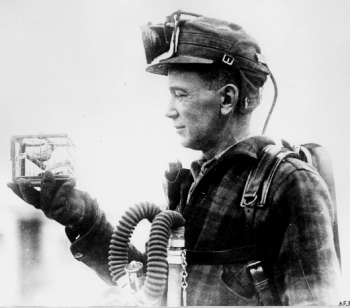The best cartoons are on Discovery Kids. In one of our favorites, "The Future is Wild," a group of kids flies through the future, searching through space for a sustainable energy source for earth. Last week they landed somewhere (I haven't quite got the show down yet...) where there were dinosaur-like beasts lumbering around. The kids honed-in on a tremendous energy source and followed their equipment (and a horrible smell) to a gigantic dinosaur graveyard...
This reminded me of a trend I've been noticing lately:
Oil is all over the arts.
Movies, TV, Theater... I think this may be as big a deal as Al Gore winning the Nobel Prize; I really do. It's easy to ignore the news and the world -- but once things move onto the stage and screen, awareness is infiltrated. Connection and communication are never stronger than in the entertainment industry, because nobody has to work at anything... When we are distracted by what we truly enjoy, our bodies take over and our minds open.
Furthermore, it's perfectly possible that no progress can be made without a little fun!
Happy New Year.
“There Will Be Blood,” Paul Thomas Anderson’s epic American nightmare, arrives belching fire and brimstone and damnation to Hell. Set against the backdrop of the Southern California oil boom of the late-19th and early-20th centuries, it tells a story of greed and envy of biblical proportions — reverberating with Old Testament sound and fury and New Testament evangelicalism — which Mr. Anderson has mined from Upton Sinclair’s 1927 novel “Oil!” There is no God but money in this oil-rich desert and his messenger is Daniel Plainview, a petroleum speculator played by a monstrous and shattering Daniel Day-Lewis.
***
***
‘TINGS DEY HAPPEN’ An engrossing one-man show about the Fulbright year its author and performer, Dan Hoyle, spent in Nigeria; in the spirit of theatrical journalism, it is at once a travelogue, a cultural survey and a good introductory course in oil politics. But it is the people the audience meets who raise the exercise above a guided tour (1:25). Culture Project, 55 Mercer Street, SoHo, (212) 352-3101. (Hampton)
***
The Hungarian cartoon feature “The District!” is a last-minute shoo-in for the title of 2007’s most original animated film, no small triumph in a year that also included the releases of “Persepolis,” “Ratatouille,” “Beowulf” and “Paprika.”
The movie is a sexually explicit, scabrously funny portrait of multiethnic European urban culture, similar to Ralph Bakshi’s early-1970s adults-only animated movies “Fritz the Cat” and “Heavy Traffic,” but richer and more coherent than either of those. It’s set in contemporary Budapest, where a group of streetwise Hungarian teenagers use a time machine (invented by their school’s resident nerd genius) to travel back to the prehistoric era and bury mammoths beneath what will eventually become their city’s streets.
 -zûrv
-zûrv )
)
















2007
12:41 pm
George Bush flip flopping? Oh, PLEASE. He has always favored big oil, big business, tax cuts for his donors, friends, and family. He doesn’t give a damn about the average American AT ALL. My definition of a Moron is a Republican making under $500,000.00/yr. Why would anyone making less vote for this clown?
Bush is a traitor, liar, criminal, and fool. What we need is a DOJ that will pursue a full investigation of this Administration. Bush belongs in Gitmo. Forever.
— Posted by PJ
2007
2:12 pm
PJ: Please, tone down the rhetoric. Yes, we need accountability. Yes, it’s no surprise that Bush is opposed to a progressive energy bill. But it’s difficult to dispel the myth of histrionic liberals when one goes flying off the handle, and it’s hard to argue that Gitmo needs to be shuttered when you’re insisting that the President should be sent there. Thanks.
— Posted by Mike